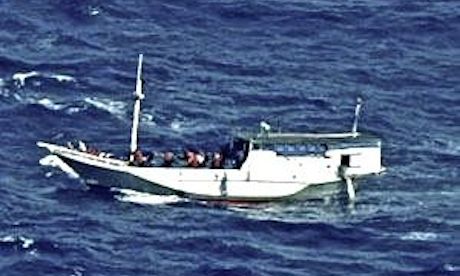The New Zealand Government has not ruled out the possibility transferring any boat people reaching it shores to detention centres in third countries.
It has rejected of the recommendation made by the United Nations Human Rights Council to rule out the transfer of asylum seekers to detention centers in third countries.
This is one of the 34 recommendations that have been rejected, out the total of 121 made by the United Nations Human Rights Council (UNHRC) after the UN States’ Universal Periodic Review’s (UPR).
Intelligence supplied to the Government confirms New Zealand is increasingly being talked up by people smugglers as a destination for asylum seekers.
New Zealand’s Prime Minister, John Key, recently said said revelations about desperate asylum seekers paying thousands of dollars to reach New Zealand by boat were no surprise.
Listen to interview with John Key.
Last year New Zealand’s parliament passed legislation late on a Thursday allowing it to detain groups of more than 30 asylum seekers for up to six months.
At that time Immigration Minister Michael Woodhouse said, “This legislation is about ensuring our system can handle a mass arrival should one occur and sending a clear message to potential people-smuggling ventures that New Zealand is not a soft touch.”
When they met in Wellington at the beginning of June, the bishops of Oceania upheld their solidarity “boat people,” urging a “more humane approach” to their situation.
Stressing that “boat people are real people,” Bishop Eugene Hurley of Darwin, Australia, remarked that “the giving of sanctuary has always been one of the noblest of human endeavors.”
He warned of the use of language to dehumanize those seeking asylum, noting that while they are called “queue jumpers,” there is no discussion of how to form orderly lines when one is fleeing war-torn Sri Lanka and Syria.
The bishop went on to call the offshore detention centers “factories for mental illness,” saying their use is “devoid of logic, fairness, and compassion.”
“The UN Human Rights Council adopted the outcome of New Zealand’s second review of New Zealand’s human rights record on Thursday 19 June in Geneva, Switzerland.
The Universal Periodic Review (UPR) is a relatively new UN mechanism that aims at reviewing a country’s human rights performance every 4-5 years. New Zealand was under review for the first time in 2009 and was again reviewed in January 2014.
Source
